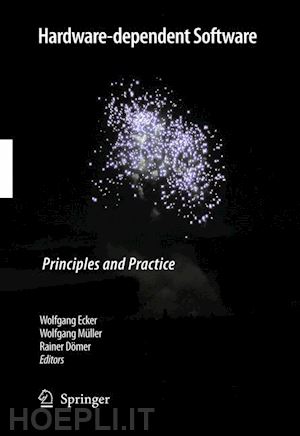
Questo prodotto usufruisce delle SPEDIZIONI GRATIS
selezionando l'opzione Corriere Veloce in fase di ordine.
Pagabile anche con Carta della cultura giovani e del merito, 18App Bonus Cultura e Carta del Docente
Despite its importance, the role of HdS is most often underestimated and the topic is not well represented in literature and education. To address this, Hardware-dependent Software brings together experts from different HdS areas. By providing a comprehensive overview of general HdS principles, tools, and applications, this book provides adequate insight into the current technology and upcoming developments in the domain of HdS. The reader will find an interesting text book with self-contained introductions to the principles of Real-Time Operating Systems (RTOS), the emerging BIOS successor UEFI, and the Hardware Abstraction Layer (HAL). Other chapters cover industrial applications, verification, and tool environments. Tool introductions cover the application of tools in the ASIP software tool chain (i.e. Tensilica) and the generation of drivers and OS components from C-based languages. Applications focus on telecommunication and automotive systems.











Il sito utilizza cookie ed altri strumenti di tracciamento che raccolgono informazioni dal dispositivo dell’utente. Oltre ai cookie tecnici ed analitici aggregati, strettamente necessari per il funzionamento di questo sito web, previo consenso dell’utente possono essere installati cookie di profilazione e marketing e cookie dei social media. Cliccando su “Accetto tutti i cookie” saranno attivate tutte le categorie di cookie. Per accettare solo deterninate categorie di cookie, cliccare invece su “Impostazioni cookie”. Chiudendo il banner o continuando a navigare saranno installati solo cookie tecnici. Per maggiori dettagli, consultare la Cookie Policy.